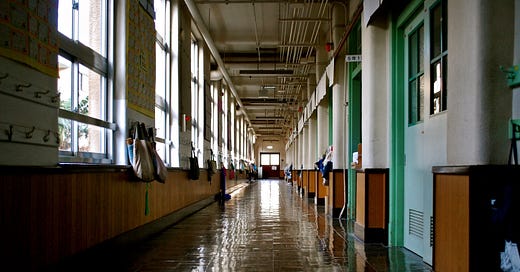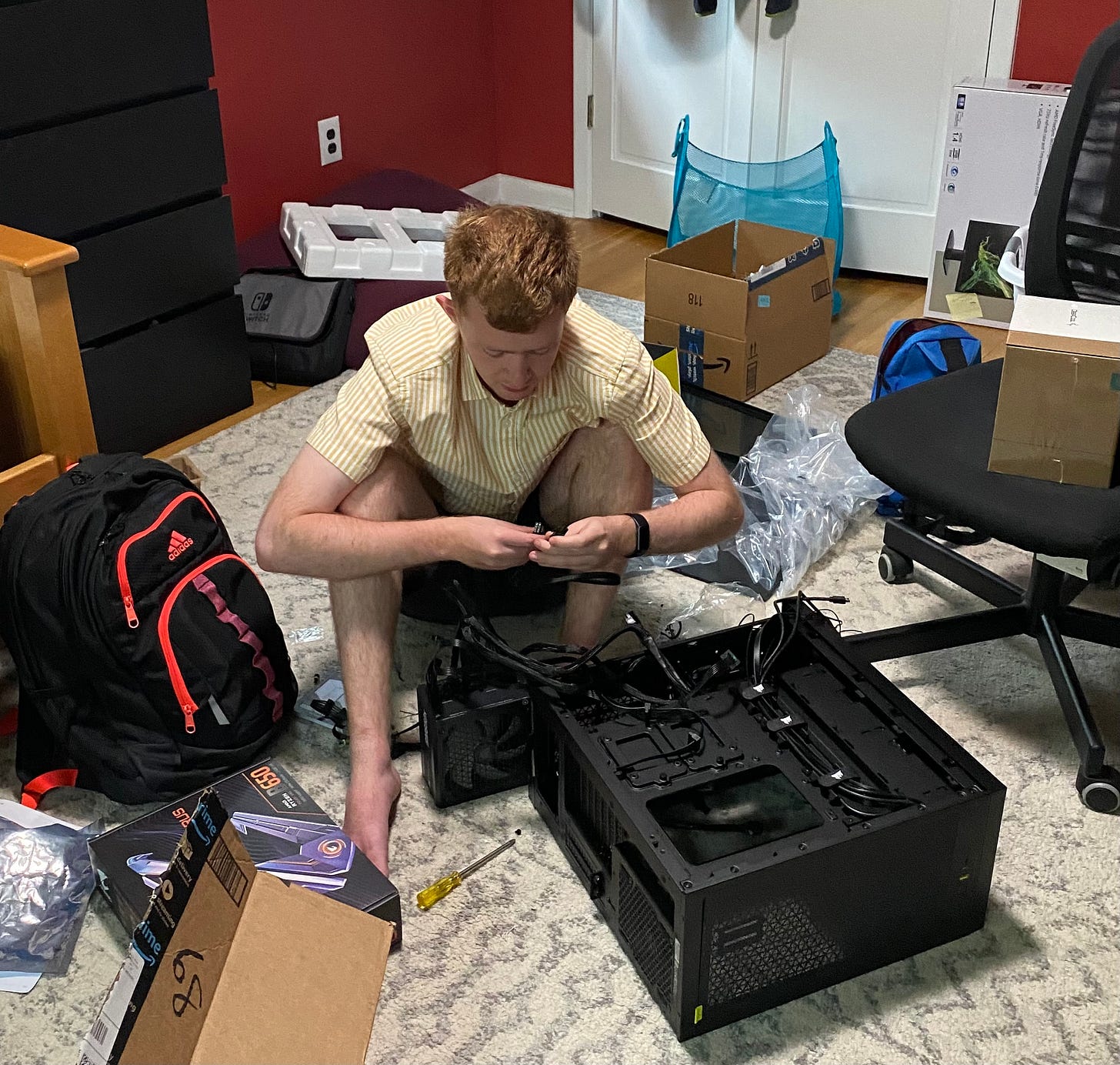Photo by kyo azuma on Unsplash
If you’re not helping your seven-year old with a math worksheet at the dinner table, never actually attended a school board meeting or a PTA meeting, talked with a teacher with 20 years of experience, or looked at your school’s performance on test scores, you probably have a very skewed picture of what’s going on in America’s schools.
If you only learn about school issues from New York Times or a 5-minute segment on the evening news, you are a football field away from America’s classrooms and children. You likely believe that the politics around schools is largely a Marvel-style fight between good and evil, a battle between progressive truth and the dark forces of greed and inequality.
That’s to be expected. In the fast paced world of modern media consumption, subtly is lost, and attention spans are short. Last year, an 1,400-word article that I slaved over was ultimately cut in half and turned into bullet point list by an editor, who wanted to make sure that the content was readable on a cellphone.
But that’s why God invented Substack. I’m here to give you the long-winded discussion of what’s really going on in America’s schools. Full sentences and even paragraphs here! No bullet points! Well, maybe one or two.
While there are definitely communities that are worried about books in the school library and the use of Critical Race Theory in classrooms, there is no evidence that these concerns are raging through little communities in Illinois, New Jersey, or Maine.
Truthfully, most school board meetings have nobody in attendance. These elected officials, who sets the goals and manage the budget for our schools, talk to empty rooms. The meetings are broadcast on cable access channels that are viewed by three old guys and one stoned teenager.
That said, I do go to my own local meetings regularly and am planning on running for office in November, because I believe in the democratic process and want to be part of the solution. For obvious reasons, I don’t talk about my particular town in this newsletter, though my real life experiences definitely color my perspective.
While education politics is actually very tame on the local level, it’s RAGING among power players right now. This week, Randi Weingarten, the president of the AFT, gave a testimony to the House oversight committee on the handling of the coronavirus. She said Covid killed a lot of people, economy was bad, Trump was bad, and she worked to keep schools open safely.
This is really hard for me, because it’s personal. I was there. I had one autistic kid in high school and one kid in college. Because we’re in New Jersey, we had a hard shutdown of schools and colleges. My kids were hurt really, really badly. They are only now getting back up to steam, after three years of time and a lot of support from us.
During the shutdowns, which lasted from March 2020 to September 2021 and then a really wobbly 2021-2022 school year, no teacher, medical professional, administrator, community member, or local official offered us help. We felt abandoned.
Panicking as I watched my kids spend hours and hours isolated in their rooms, I wasn’t quiet. I tweeted. I blogged. I wrote. I gave speeches at school board meetings. At one point, I paid educational professionals to just talk to the autistic kid during the day, because he was mourning the end of his beloved school.
Later, the AFT and other players pushed the government to pass federal funding to go to the schools, Weingarten said. However, there is little to no accounting of where the money went. Did schools spend the money to provide tutoring to kids who suffered the worse learning lag? Or they use the money to fill holes in their budget? We don’t know.
A few years later, we know that these school closures were disastrous for mental health and learning. Young children missed out on critical years of pre-school and have major behavioral issues. A study that I skimmed this morning found that the closures also had negative impacts on absences, course grades, and grad retention. The research is going to keep coming out, and it’s all bad.
What’s frustrating is that these bad outcomes were all obvious to anybody with any experience with children, but at the time, our concerns were marginalized. I was told that my concerns about school closures were “anti-teacher.” I was told that these closures were GOOD for some kids. I was told that kids weren’t suffering learning lag, because they still got good grades from their teachers. I couldn’t find a mainstream outlet to publish an opinion piece that discussed my concerns.
Sunday’s New York Times Magazine largely defends Weingarten. The article, “How Randi Weingarten Landed at the Heart of America’s Political Fights” does include a reference to a “study by Brown University’s Annenberg Institute found that Democratic districts, with correspondingly strong teachers’ unions, returned to in-person learning more slowly and gradually than Republican districts with weaker unions.”
The NYT’s Weingarten article is taking a lot of heat on Twitter at the moment. However, David Leonhardt, who has written a lot about the damage done to kids by school shutdowns, says that the magazine article’s author, Jonathan Mahler, makes good points. Both agree that schools will be a big issue in the next election. (All the more reason to subscribe to this education-smart newsletter.)
In this education cage match, we have those who contributed to school closures and are now defending their decisions. And those who are still scarred and upset and want accountability.
While that fight is going on, there’s a small group in the back — on the edges, muttering to themselves, drinking too much coffee — who are scarred and upset, but thinks that this fight is bad news. Accountability won’t give my kids back three years of their lives. I would rather have reparations — goods and services given directly to young people, who suffered the most.
Young people need high stakes tutoring. They deserve improved reading and math curriculums. They need textbooks, like actually textbooks. They need to be taught to memorize multiplication tables and the formula for the area of square. They need to learn about worms and wars, Kings and serfs, cloud formations and photosynthesis. Some services might not come from the schools themselves, like mental health support and social opportunities, but from the larger community.
My litmus test when it comes to making choices about education politics is always, “what’s best for kids?”
LINKS
Coming up next: Curriculum Wars with The Science of Reading, Content Education, Equitable grading, a four-day school week, Textbooks, and more!
My autistic kid spent 1-1/2 years isolated from other humans when school closed. At the same time, he got epilepsy; meds made him super sick. He graduated and went to an understaffed 18-21 program. It was three tough years.
This weekend, he built his own computer entirely on his own. No classes. No support from us, because we don't know a motherboard from a hard drive. He watched YouTube videos and played a computer building simulation on STEAM. He then created a shopping list & had a budget (bday gift cards). It works. He just needs a video card that matches up with his monitor, so is waiting for Steve to drive him to the computer part store tomorrow. (Pictures here)
Families grapple with rising college costs, NPR
Yeah, I’m also sick of the constant smell of pot on the streets of NYC. And I’ll be there a lot this weekend. I’m going to the ABAA Book Fair on Saturday. Later, I’ll meet up with Ian and Steve for an Ian-friendly dinner. On Sunday, I’m meeting a friend for lunch at a great Italian restaurant in the West Village — Palma, Cornelia Street.
“A study evaluating thousands of students across 90 countries found that 4th graders who used tablets in nearly all classes scored 14 pts lower on a reading test than students who never used them…a score gap ‘equivalent to a full grade level’ of learning.”
I finally finished two years of paperwork to get my son in the system for disabilty payments. Woot! I gave advice to other parents about the process in my Wednesday disability newsletter:
Royal Family Gossip: As we’re leading up to King Charles’s coronation, the drama between family members is ramping UP, UP, UP. I might have to write more about this next week, but in the meantime, here are some links: Harry’s case against the media has some problems. Stories about Harry missing home and Meghan’s solo ventures are sparking divorce speculations.
$22,000-$165,000 for a spacious dwelling with bucolic views in Italy? I’m in!
Who else is worried about the Biden 2024 ticket?
Shopping: I am a huge sucker for travel clothes. I also bought some nice linen pants from the Gap.
Dr. Fauci now thinks that schools were closed for too long. Thanks for speaking up at the time, Dr. Fauci!
Have you made your summer vacation plans yet? Where are you going?





A FANTASTIC PIECE OF JOURNALISM, LAURA. AND SPICED WITH HUMOR!
Your proud Daddy
Great reading 👏
I am a happy dad of an autistic 13 years old successful kid.
It's been years of literal coaching/parenting since my son was luckily diagnosed Autistic at age 4.
It has been a curse & a blessing 🙏
I was diagnosed myself 2 weeks ago.
I lived in the US between 2018 and 2021. Happily back in the UK 😁 where tensions/dissensions are not as extrem than in America.
We are lucky to have a functioning educational system where my kid can thrive with support from us and his grammar school.
I subscribe now to your newsletters, and I send a link to my wife who is pationate about the subject of autism 🧐.
But who wouldn't be? 😁
Thank you for your blog. 👏